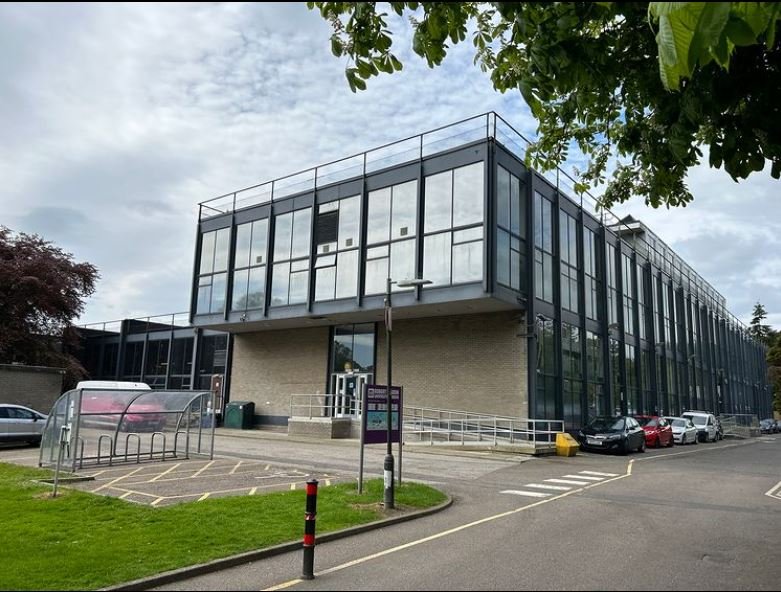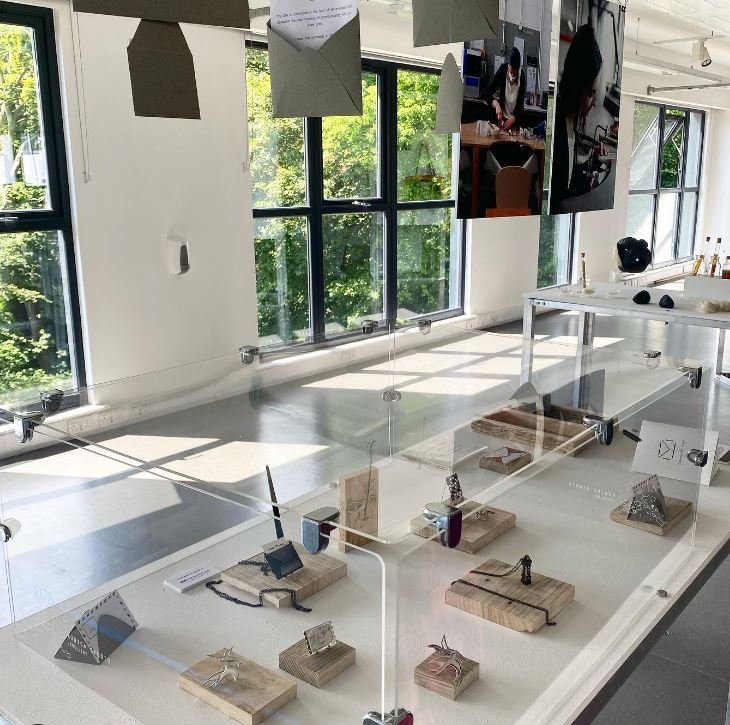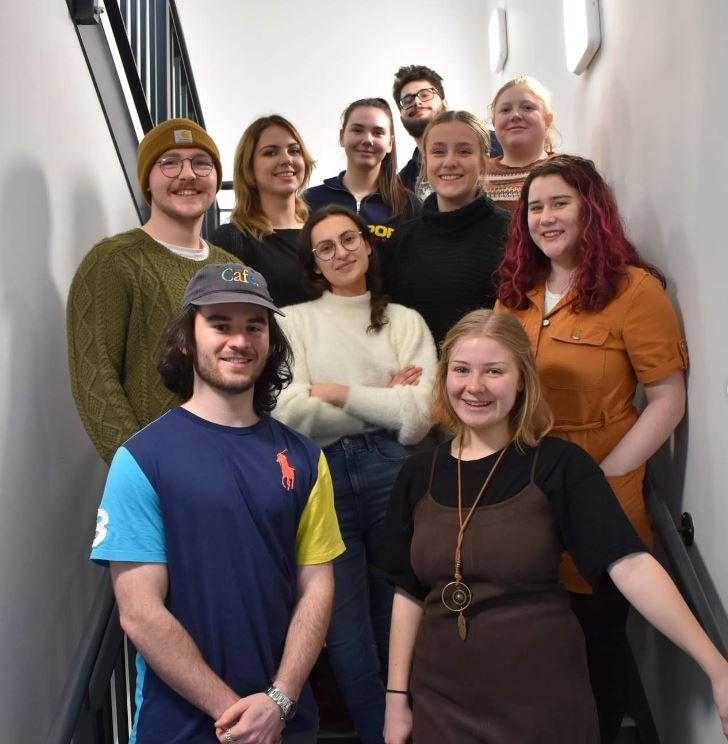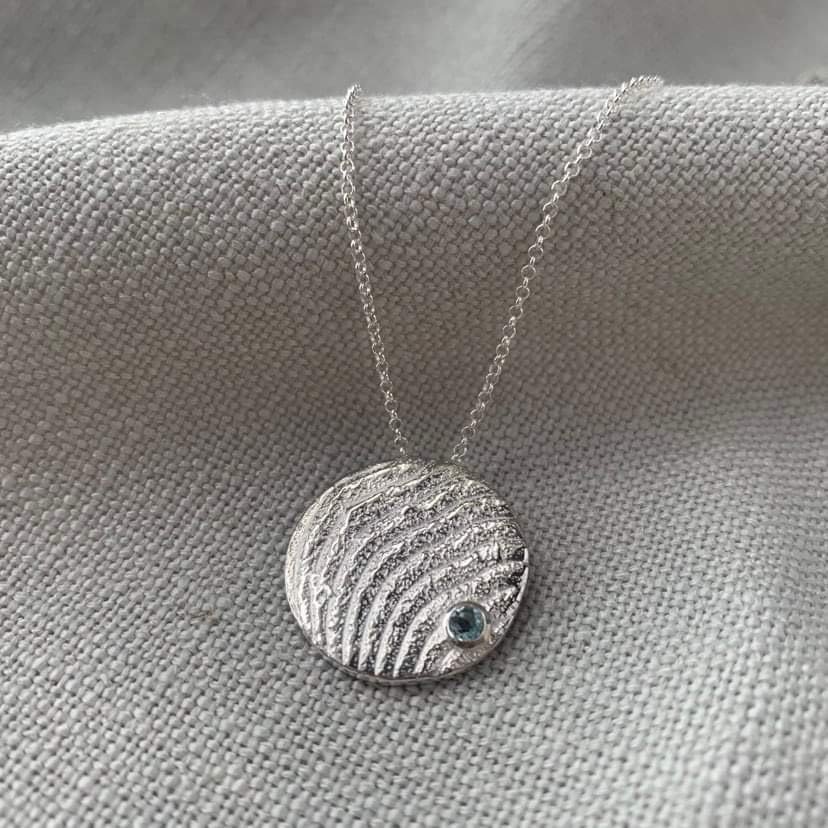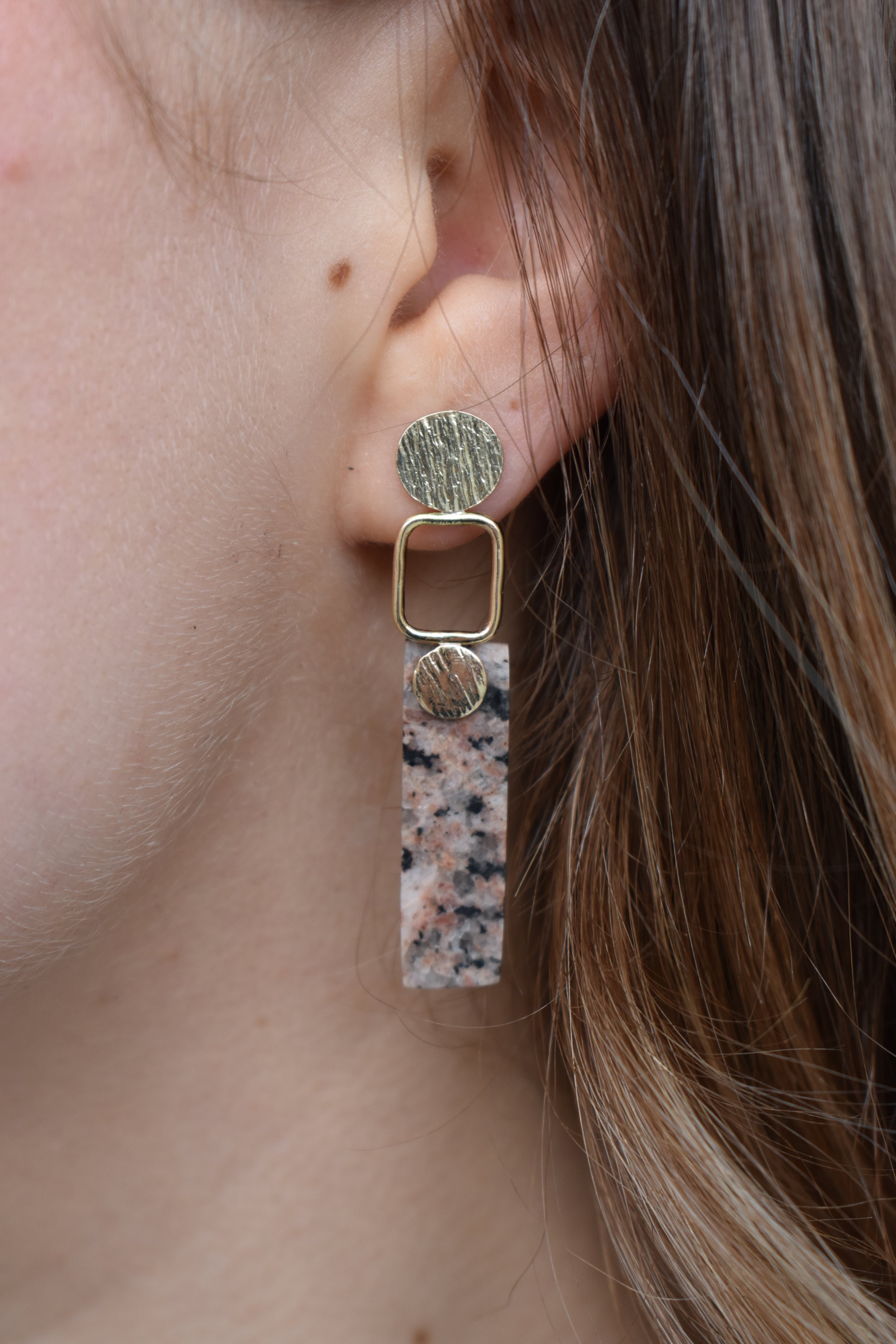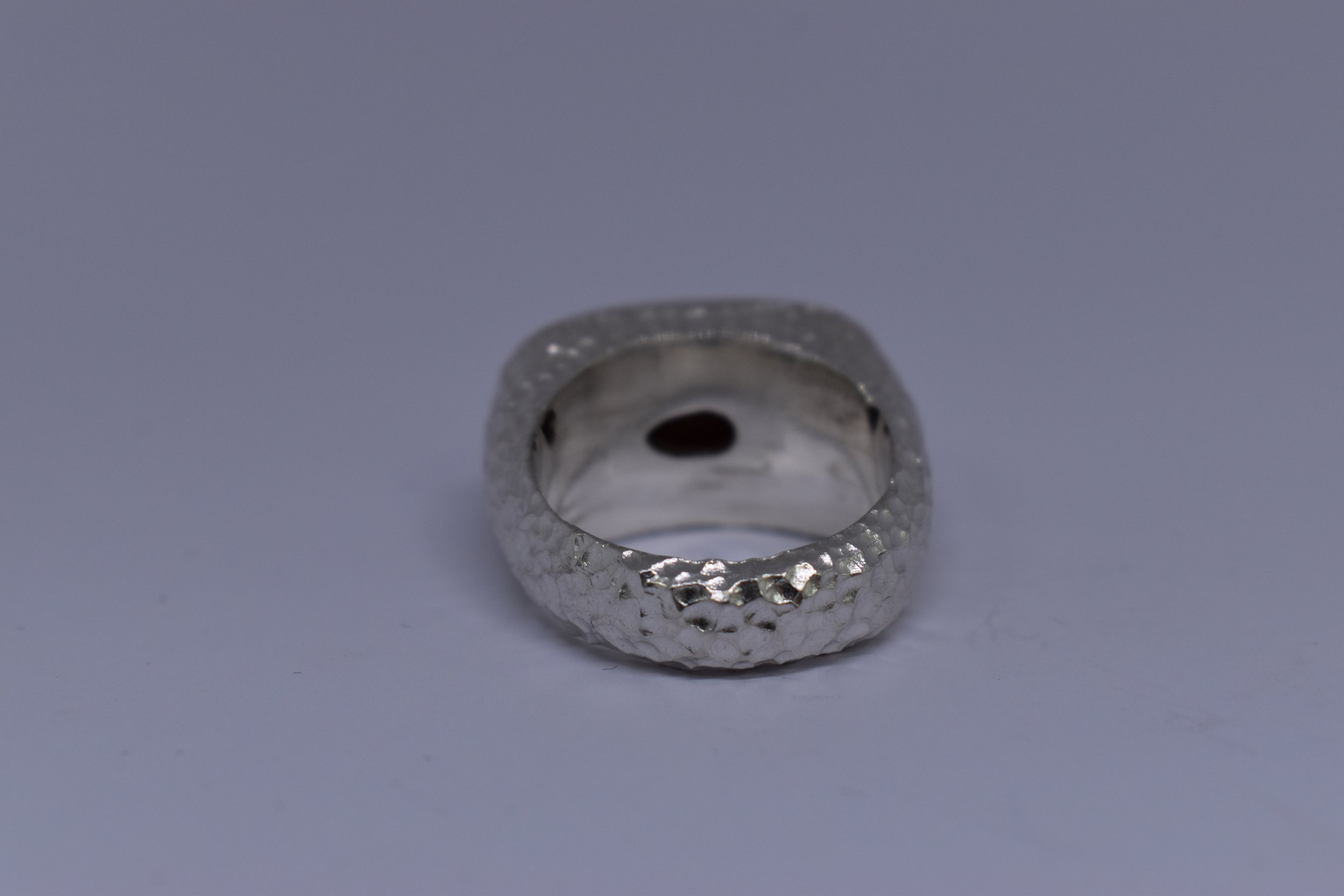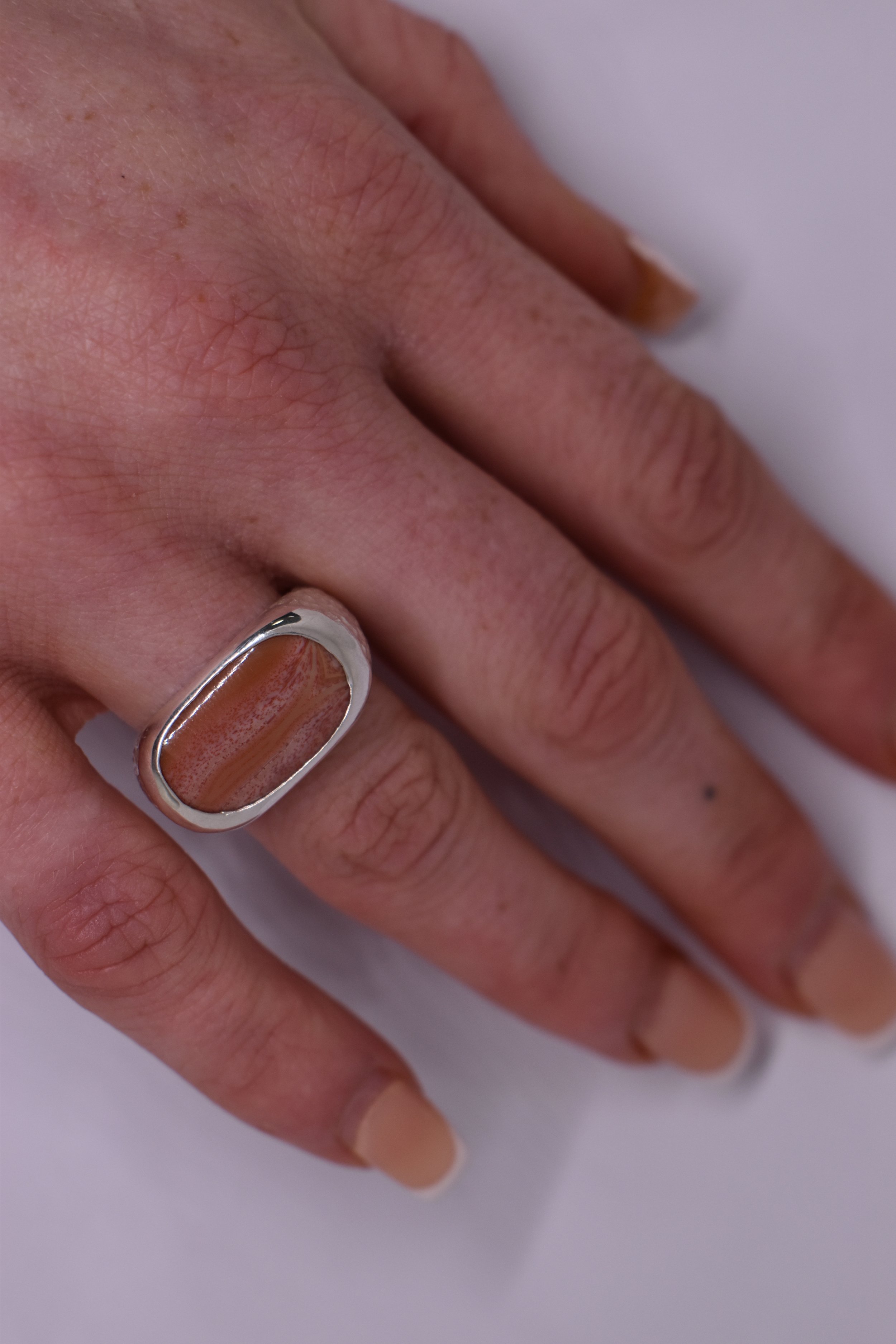Ethical Making @ Gray's School of Art
Gray’s School of Art is part of Robert Gordon University in Aberdeen, which has been an Ethical Making Pledge signatory since 2018. We spoke with Gray’s Ambassadors Finlay Aitken and Hannah Wooldrage to find out what they have been working on over the last year. The answers have been written by Finlay.
Within your workshop, what collective efforts towards more ethical/sustainable/responsible practice have been made this year?
Ensuring there is less waste at Grays School of Art especially in the jewellery workshop. We are encouraging tea towels which reduces the amount of paper towels which are used once and thrown away. The tea towels can be used then washed and reused. There is no waste this way which is beneficial for being more ethical.
How has your course integrated themes of ethical making into the curriculum?
Our technician Milly has done a number of things in the workshop to make sure it's more ethical. Safety pickle, ultrasonic with no harmful chemicals, scrap metal is reused or scrapped and the money is put towards new materials or tools. The scrap metal is also used for casting.
Have you (or any of your classmates’) addressed themes of ethical making within your creative practice?
Being an environmentalist Finlay always aims to create jewellery that's as ethical as possible. In his honours project he is making his own stone setting tools to be sustainable and unique. He is using a process within one of his pieces called salt water etching which is the eco-friendly variation of acid etching. Being a designer and maker creating unique one off pieces he has also been sourcing his own gemstones, Cupar Agates. Renato (Scottish Gemstones) kindly polished agates and granite for his recent project.
Finlay and Hannah both use scrap metal from previous projects or 100% recycled silver and gold. Buying gemstones from sustainable dealers to ensure traceability and encouraging others to do the same. Gemstones brazil is a great example of this being a sustainable gem dealer offering a huge variety of gemstones across the world.
What progress do you envision your course making over the coming year?
Encouraging people to walk or cycle into university which is a more sustainable way to commute into university daily. Importance of ethical making and continuing to do things in the workshop that is sustainable and ensuring people learn and continue this practice. The cafe has also started using reusable cups which is a step forward on the waste aspect. People can easily pay a one off £1 for the cup then they take it up when they need a drink and their cup will be used.
How has being an Ethical Making Ambassador changed your learning and practice?
It encouraged us both to make our practice as ethical and sustainable as possible with sourcing and making jewellery. We have learnt more about the fairtrade process as well as the difficulties in the industry with social injustice. Having access to the ethical making resources has been really helpful and informative which we will continue to use and it will help us develop greater knowledge and help us educate others.
Thank you to Finlay Aitken and Hannah Wooldrage for kindly providing the information in this blog on sustained commitment to ethical practice at Gray’s School of Art.
Visit our Supplier Directory to find out more about Scottish Gemstones, Gemstones Brazil and more. Membership is free and required to access this page.

